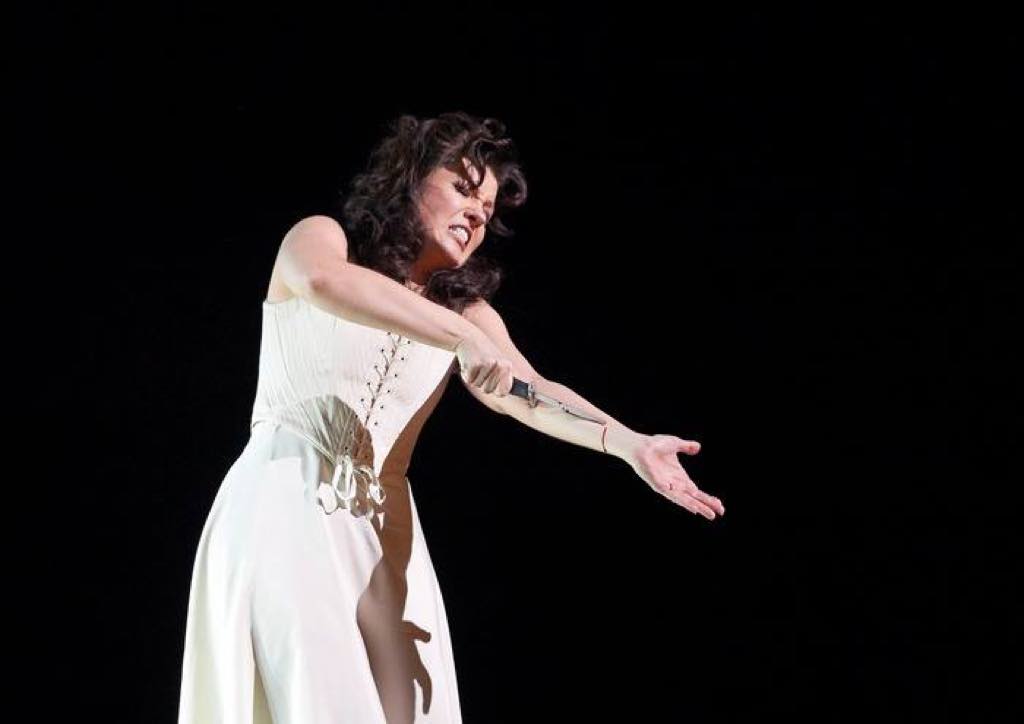
My attempts to write a review of the Paris Opera’s production of Jules Massenet’s opera Manon have been continuously thwarted during the last few weeks. First, opening night at the Bastille Opera House was canceled because of a strike, then the entire run was suspended soon afterward because of Covid-19. When it was announced that a film of the production was to be distributed online, I planned to review it from my position of splendid isolation in Britain, only to find that the stream was available only in France.
To make up for the lack of French operatic singing, therefore, I was delighted to discover that a new recording of French opera arias, including an aria from Manon (“Allons! Il le Faut” from Act 2), sung by the Latvian soprano Marina Rebeka, is being released this week. The album, Elle, shows off Rebeka’s formidable technique with a glorious selection of arias by Massenet, Charles Gounod, Gustave Charpentier, Georges Bizet and Claude Debussy.
Rebeka, who trained in Italy and is known mainly for her Italian repertoire, only recently made her debut – as Violetta in Verdi’s La Traviata at the Bastille – so it came as a pleasant surprise to discover how naturally suited she is to the French idiom. She has an impressive range – from a rich mezzo-soprano tone to some magnificent high notes – and the depth and variety of her interpretations come across forcefully, even with the inevitable restrictions imposed by singing a sequence of single arias rather than a sustained role.

Another joy of this disc comes from her choice of pieces. Although there are some old favorites, such as “L’Amour Est un Oiseau Rebelle” from Bizet’s Carmen and “Il Ne Revient Pas” from Gounod’s Faust, she is not afraid to delve into lesser-known repertoires, with arias from Massenet’s Le Cid, Hérodiade and Thaïs and Debussy’s L’Enfant Prodigue. Her singing of an aria by Chimène from Le Cid (inspired by Pierre Corneille’s play) in particular displays intensity and dramatic power suggesting that she may be ready to perform some of the heftier roles from the German operatic repertoire in the future.
The highlight for me was the opening piece on the recording, “Depuis le Jour” from Charpentier’s Louise. First performed in 1900, Louise displays an unequivocally 19th-century musical language, which might explain why Charpentier, who was born in 1860 and lived to the ripe-old age of 95, wrote relatively little after Louise: his music belongs to a bygone age. But the beauty and range of this piece show Rebeka at her very best. She is ably supported by the Swiss Sinfonieorchester St Gallen, conducted by Michael Balke.
This disc might not fully make up for the lack of operatic activity in Paris during the shutdown, but close your eyes and listen to Marina Rebeka’s gorgeous voice, and you might just find yourself transported away from the confines of your home for an hour of scintillating French music.
Favorite